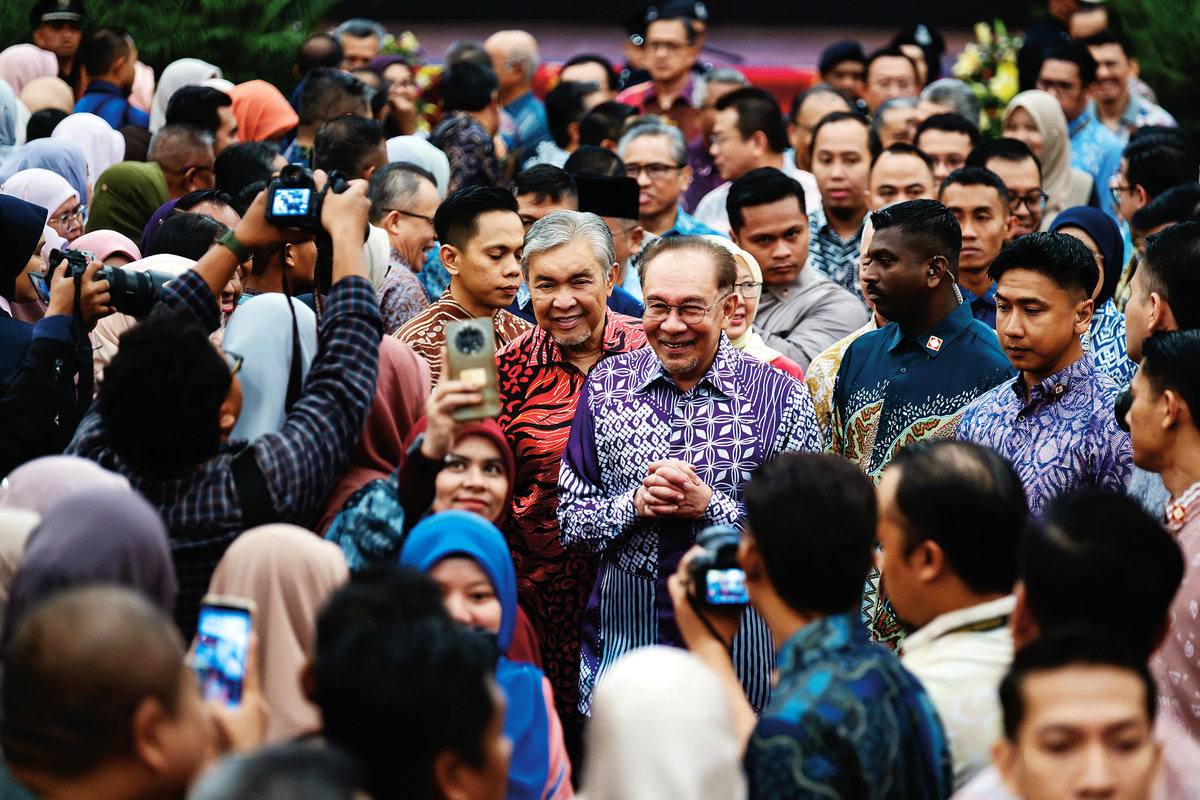PETALING JAYA: The unexpected resignations of Datuk Seri Rafizi Ramli as Economy minister and Nik Nazmi Nik Ahmad as Natural Resources and Environmental Sustainability minister – both prominent PKR reformists – have sparked speculation about a possible Cabinet reshuffle and the internal direction of the party.
Political analysts maintain that while the move signals a shift in the leadership dynamics of PKR, it is unlikely to threaten the stability of the Madani government.
Universiti Malaya political analyst Dr Mohammad Tawfik Yaakub believes there is no immediate need for a reshuffle, suggesting instead that Prime Minister Datuk Seri Anwar Ibrahim could use the situation to consolidate and streamline ministries.
“The prime minister could merge the Economy Ministry into the Finance and International Trade and Industry Ministry portfolios, and the Natural Resources Ministry into the Energy Transition and Water Transformation Ministry.
“This move would not only address the current vacancies in these two ministries but also help reduce administrative costs and enhance government efficiency through consolidation,” he said.
Speculation has also swirled over whether Anwar’s daughter Nurul Izzah might step into a formal role following the resignations, but Mohammad Tawfik believes this is unlikely.
“Her previous role as PKR vice-president already qualified her for a significant position, but she wasn’t appointed.
“That shows caution on the part of both her and the party. If she were appointed now, it would send a negative signal and invite further accusations of nepotism,”
he said.
On the potential impact among young voters, who once viewed Rafizi and Nik Nazmi as key reform voices, Mohammad Tawfik acknowledged there may be some disappointment, although not a dramatic shift.
“Their actions were bold but also irresponsible, especially when the country had just hosted the Asean Summit and was working to strengthen economic and political stability.
“Still, youths today are more pragmatic and do not follow leaders blindly.”
Universiti Teknologi Malaysia political analyst Assoc Prof Dr Mazlan Ali also downplayed the risk of instability, pointing to the unity government’s strong two-thirds majority in Parliament.
He noted that Rafizi had already indicated he would resign if he lost the PKR deputy presidency, while Nik Nazmi’s decision appeared tied to his support for Rafizi and his own recent loss at the
branch level.
“I believe the prime minister already has a plan to fix the situation, likely through a reshuffle before the Sabah state election.”
He added that further resignations are unlikely to destabilise the party, describing the resignations as a result of democratic elections in which the grassroots had chosen their leaders.
Universiti Sains Malaysia political analyst Prof Datuk Dr Sivamurugan Pandian viewed Rafizi’s resignation as a principled move in line with his campaign promise.
“Rafizi’s decision is consistent with what he said during the campaign. He’s sticking to his word to avoid questions about his political integrity.”
However, Sivamurugan added that others aligned with Rafizi might follow if the decision is part of a broader collective stand.
He also said the moment could serve as a political reset.
“I strongly believe there will be a reshuffle and this may be the right time for the prime minister to retain, drop or bring in new appointments to shape the Cabinet for the next general election.
“This is democracy at work, a reflection of political rights and integrity. It could be a collective decision to show that the party matters more than personalities.”
Rafizi and Nik Nazmi announced their resignations on Wednesday via social media following their defeats in the recent PKR internal elections.
Rafizi’s resignation will take effect on June 17, while Nik Nazmi’s will be effective July 4.
On Thursday, Anwar said a Cabinet reshuffle is not currently under consideration, adding that ministers cannot be replaced while they are on leave.









